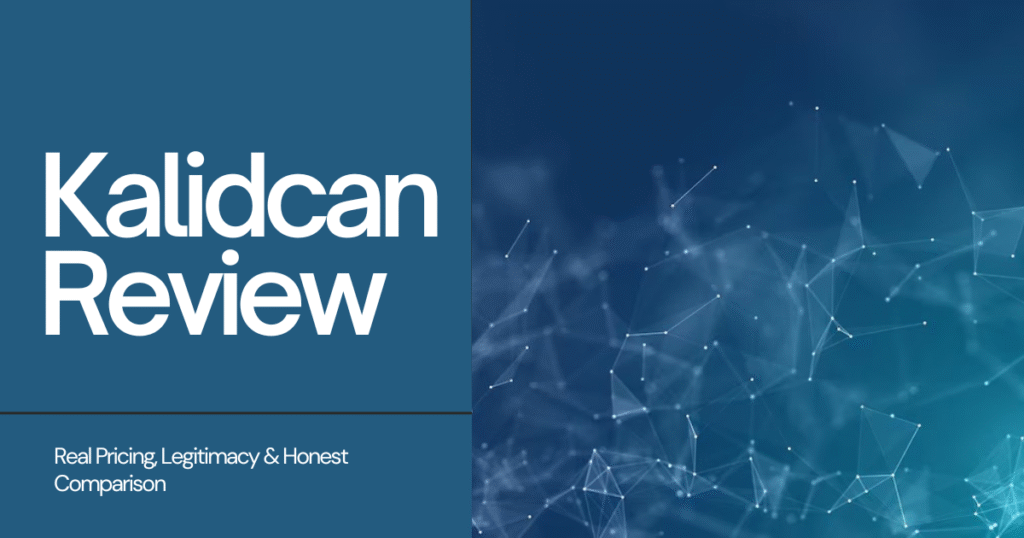
Seekde is an AI-powered search platform that understands what you’re actually looking for—not just the words you type. Instead of throwing 50 blue links at you, it delivers structured, sourced answers that connect related ideas and guide you to action faster.
Think of it as your research assistant that knows what you mean before you finish asking. Students use it to build study plans. Researchers map topics in minutes. Freelancers get market briefs without opening 20 tabs. You ask one question and get a clear path forward—not a list of ads.
How Seekde Actually Works Behind the Scenes?
Seekde reads your full question and figures out what you’re trying to accomplish. It uses natural language understanding to spot your goal, constraints, and preferences—then shapes answers around them.
When you ask “best running shoes for flat feet under $120 for 10k training,” Seekde interprets the complete picture. It knows you want shoes that support flat arches, fit 10k distance training, and stay under budget. You get a short list with fit notes, pros and cons, and training tips—not generic shopping ads.
The platform runs on five core technologies. First, natural language processing reads intent from your questions. Second, knowledge graphs connect related concepts you didn’t know to ask about. Third, machine learning adapts results based on what you click and save. Fourth, real-time indexing keeps facts current. Fifth, cloud infrastructure ensures fast access even during peak hours.
Every search makes the system smarter. It learns which formats you prefer, which sources you trust, and how deep you like to go. This happens without needing your personal data—the system uses behavioral signals, not identity tracking.
The Big Difference Between Seekde and Google Search
Traditional search engines pile on links and let you do the work. Seekde gives you guided, connected insights so you keep momentum without losing focus.
Google excels at finding specific websites or quick facts. You search “height of Mount Everest” and get an instant answer. Seekde shines when you need to compare options, learn complex topics, or make decisions with multiple trade-offs.
Here’s what sets them apart. Speed—Seekde delivers one clear summary with relevant sources instead of 50 tabs. Relevance—responses match your intent, not just your keywords. Clarity—you get short answers first, with optional depth when you want it. Connected ideas—you can follow related threads without getting lost.
The tools complement each other. Use Google for known facts and specific sites. Use Seekde for research that requires synthesis, comparison, or structured learning paths.
Who Benefits Most from Using Seekde Right Now?
Seekde works best for people who need fast clarity, structured learning, or focused research. Five groups see the biggest gains from switching.
Students turn vague topics into actionable study plans. You can build a three-week outline to prep for a biology exam, complete with key terms and practice quizzes. The platform breaks down complex subjects into manageable chunks.
Researchers map topics and spot gaps quickly. Ask for a summary of current findings on microplastics, and you’ll see contrasting methods, key papers to review, and evidence quality ratings. You save hours of manual literature review.
Freelancers make faster project decisions. Compare proposal formats for a branding project and get the best-fit template with examples. Market research that took days now takes minutes.
Small teams cut meeting time with instant briefs. Generate a one-page competitor snapshot with suggested next steps. Everyone stays aligned without endless email chains.
Lifelong learners absorb information faster with structure. Create a 10-hour path to understand large language model basics, complete with checkpoints and simple examples. You learn efficiently without information overload.
People Also Love to Read This: Louisville vs Miami FL
Seekde’s Smart Search Features That Save You Time
The platform offers three standout features that traditional search engines can’t match. Smart search forms the foundation—it produces relevant results by understanding context and intent, not just matching keywords.
Personalized recommendations adapt to your preferences over time. After learning what you click, save, and explore, Seekde hand-picks suggestions tailored to your interests. Finding new resources becomes effortless because the system learns what matters to you.
Advanced filters let you refine searches with surgical precision. Filter by date, popularity, relevance, source type, or expertise level. This targeted approach eliminates irrelevant results and ensures you find exactly what you need.
The unified display shows different content types in neat sections. You see summaries, comparisons, and sources all on one screen—no need for multiple browser tabs eating up your RAM.
Voice search capabilities are coming soon. This update will make Seekde more accessible for users who prefer speaking their queries. The hands-free experience will be perfect for research while multitasking.
Privacy-First Design Protects Your Data
Seekde builds privacy into its core architecture, not as an afterthought. The platform doesn’t track you across the web or require personal information for personalization.
Your search history stays private and local to your session. The system uses behavioral signals—what you click, how long you read, which formats you prefer—without linking this data to your identity. You get personalized results without surveillance.
No third-party data brokers access your information. Seekde doesn’t sell user data to advertisers or marketing companies. The business model focuses on premium features, not monetizing your digital footprint.
You control your data with transparent settings. Delete your history anytime. Adjust what the system learns from your behavior. Export your saved searches if you want a backup. These controls put you in charge.
The clean interface removes clutter and tracking pixels. You won’t see retargeting ads following you around the internet after using Seekde. Your research stays between you and the platform.
Real Use Cases: Learning Complex Topics Step by Step
Seekde excels at breaking big topics into manageable stages. The platform’s connected insights help you map concepts, pick resources, and track progress without feeling overwhelmed.
Use this five-stage approach for deep learning. Stage one defines your outcome and time budget. Stage two maps key concepts, subskills, and milestones. Stage three builds a timeline with checkpoints. Stage four adds practice tasks and mini projects. Stage five branches into related topics for deeper exploration.
Try this sample prompt: “I want to learn prompt engineering for LLMs in 10 hours over two weeks. Beginner level. Give me a staged plan, key terms, three practice tasks, and five reputable sources with links.”
Follow up with: “Show examples of bad versus good prompts for error handling. Keep it short and actionable.”
Then extend: “Add a project—build a mini guide that improves a customer support reply. Include test cases and a rubric to grade it.”
This structured approach turns intimidating subjects into achievable learning paths. You move from confusion to competence faster than traditional trial-and-error methods.
Research for School and Work Gets 10x Faster
Seekde helps you jump from background reading to balanced viewpoints to citable references—all while keeping threads connected so you don’t lose your place.
Use this three-pass research flow. First pass gets you a plain summary, key terms, and current debates. Second pass asks for opposing methods, pros and cons, and evidence strength. Third pass collects references with links and citation formats.
Try this scope-setting prompt: “Research brief on urban heat island mitigation for a policy memo. Timeframe: studies from 2020 to present only. Output: 500-word summary, five bullet takeaways, and eight sources in APA format. Include two contrasting viewpoints.”
Save time with this quick checklist. Set your date range and geographic region upfront. Ask for opposing views, not just consensus. Request citations in the format you need. Save the best threads for reuse. Use follow-ups like “evidence quality by study type” to strengthen your claims.
Academic libraries curate AI research tools that complement Seekde. Pair the platform with databases like JSTOR or Google Scholar for comprehensive literature reviews. You get speed from Seekde and depth from specialized databases.
Market Research Without Opening 50 Browser Tabs
Freelancers and small teams turn loose signals into clear briefs using Seekde. The platform maps customers, trends, and competitors—then lets you pressure-test the output.
Use this prompt template: “Act as a research assistant. Market: B2B SaaS for SMB accounting firms in the US. Goal: find top five jobs-to-be-done, current pains, and buying triggers. Include three key trends, five competitors with unique angles, and common objections. Output a one-page brief with bullets and a short action plan.”
Add constraints for precision. Specify budget range, team size, decision maker role, sales cycle length, and existing tool stack. The more context you provide, the better your results.
Validate findings with this approach. Ask Seekde for evidence links supporting each insight. Sample check the sources. Run a follow-up like “Show quotes or data supporting the top three pains.” Pair this desk research with five short customer calls to confirm. Mark what holds up and what needs revision.
Simple follow-ups make research actionable. “Sort pains by severity and frequency.” “Show competitor FAQs compared to our offer.” “Turn this into a seven-slide client-ready deck outline.” You move from research to presentation in minutes.
People Also Love to Read This: bop444money
Solving Everyday Decisions Without Information Overload
Seekde handles daily choices that need trade-offs, not endless scrolling through listicles. The platform gives you comparisons, steps, or decision trees—then lets you refine.
Travel planning becomes effortless: “Three-day Tokyo plan in March, first-time visitor, mid-budget, focus on food and light walking. Include daily maps, transit tips, and reservations to book now.” You get an itinerary, not a travel blog rabbit hole.
Device comparisons cut through marketing speak: “Compare mid-range Android phones under $500 for battery life and camera quality. List three picks with pros, cons, and who each phone fits best.” You make informed decisions without watching 20 YouTube reviews.
Home repairs get clearer: “Washer leaves clothes damp. Give me a troubleshooting checklist, common causes, cost ranges, and when to call a professional.” You know whether to DIY or hire help.
Ask for what you need—comparisons, steps, timelines, or decision trees. Then refine with “Shorten to one page” or “Add a buy-now checklist.” Seekde adapts to your specific situation instead of generic advice.
How to Write Better Prompts for Seekde
Good prompts make Seekde shine. Follow these simple rules to get better results every time you search.
State your goal clearly. Are you trying to decide, learn, compare, or troubleshoot? The platform adjusts its response based on your intent. “Help me decide between X and Y” gets different results than “Teach me how X works.”
Set your constraints upfront. Mention time limits, budget caps, location restrictions, and tool requirements. “Best laptop” gets vague results. “Best 13-inch laptop for photo editing under $1,200 with good color accuracy and multiple ports” gets precision.
Include your preferences. Specify experience level, desired tone, output format, and target audience. Beginners and experts need different answers to the same question. Tell Seekde where you stand.
Ask for structure. Request steps, tables, pros and cons lists, or executive briefs. Format matters when you’re scanning results quickly. “Give me five options in a comparison table” beats “Tell me about options.”
Follow up to refine. Tighten scope, add sources, or request examples. “Shorten to bullet points.” “Rank by impact, then by effort.” “Show only items with source links.” Each follow-up improves relevance.
Common Mistakes and Quick Fixes
Too vague: “Marketing ideas” gives scattered results. Fix it: “Ten demand-generation ideas for a SaaS with $2,000 monthly recurring revenue, three-month runway, focus on partnership channels.”
No range: “Best laptop” lacks context. Fix it: “Best 13 to 14-inch laptops for photo editing under $1,200, including color accuracy specs and port selection.”
Missing output format: “Research solar incentives” needs structure. Fix it: “One-page brief with five bullets, official links, and a yes-or-no eligibility checklist for California homeowners.”
No sources requested: “Summarize microplastics research” leaves you hanging. Fix it: “Add eight peer-reviewed sources from 2022 to present with links and one-line key findings for each.”
These small adjustments transform mediocre searches into laser-focused results. Spend 30 seconds crafting your prompt and save 30 minutes sorting through noise.
The Future of Search Technology with Seekde
Seekde represents a paradigm shift in how we interact with information online. The focus moves from finding links to understanding concepts and taking action.
Future search will be conversational. You’ll ask complex questions and receive comprehensive responses that anticipate your next question. This reduces the time needed to gather useful information by 10x or more.
The platform helps build a “web of knowledge” where information connects across sources into a unified network. Instead of isolated facts, you see relationships between ideas. This makes the entire internet more accessible for everyone.
Ongoing AI advancements will enhance platforms like Seekde further. Future versions might offer real-time collaboration features, deeper source verification, and multi-modal search combining text, images, and video. The potential for growth is massive.
Voice and visual search integration will expand access. Imagine photographing a plant and asking “What is this and how do I care for it?” Seekde could analyze the image, identify the species, and provide growing guides—all in seconds.
Why You Should Start Using Seekde Today
Seekde transforms how you explore knowledge online. It’s not just a search tool—it’s a thinking partner that understands why you’re searching, not just what you type.
The platform combines intent recognition, adaptive learning, and connected knowledge mapping. You get structured, useful answers instead of scattered links. Discovery becomes focused, not random.
From students to researchers to teams, Seekde brings the next evolution of web exploration. AI guides you through discovery instead of distraction. You spend less time hunting and more time learning, deciding, and acting.
The efficiency gains are real. What took hours now takes minutes. What felt confusing becomes clear. What seemed overwhelming becomes manageable. That’s the power of intent-driven search.
Start with one complex question you’ve been avoiding. Let Seekde show you how structured answers beat link lists. You’ll wonder how you ever researched without it.
Frequently Asked Questions
Q1: Is Seekde supposed to replace Google entirely?
No, Seekde and Google serve different purposes. Google excels at finding specific websites and quick facts like “height of Mount Everest.” Seekde shines for complex questions requiring synthesis, comparison, or learning paths. Use both tools together based on your needs.
Q2: How much does Seekde cost to use?
Seekde follows a freemium pricing model. The free tier covers routine queries and basic features. Premium subscriptions unlock advanced research paths, higher usage limits, team collaboration tools, and API access for professionals and businesses.
Q3: Can I use Seekde on my phone?
Yes, Seekde works on mobile devices through web browsers. The platform’s interface adapts to smaller screens while maintaining full functionality. Voice search capabilities coming soon will make mobile use even more convenient.
Q4: How does Seekde protect my privacy?
Seekde uses privacy-by-design principles. It doesn’t track you across the web or require personal data for personalization. Your interactions stay private and local to your session. You control data deletion and can adjust what the system learns from your behavior.
Q5: What makes Seekde different from ChatGPT or Perplexity?
Seekde focuses on intent-driven research with verified sources and structured outputs. ChatGPT excels at open-ended writing and brainstorming. Perplexity combines search with AI chat. Seekde sits between them—more structured than chat tools, more conversational than traditional search. The tools complement each other for different tasks.










